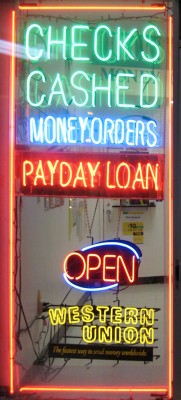
(Photo by Gregory F. Maxwell)
At a time when jobs are scarce, it should come as no surprise that higher percentages of students are defaulting on their college loans. Default rates increased from 5.9 percent to 6.0 percent at public institutions, and from 3.7 to 4.0 percent at private colleges and universities, new U.S. Department of Education data show.
The news was worse at for-profit colleges, where the default rate rose from to 11.0 percent to 11.6 percent, according to a story in Bloomberg News and a press release from the U.S. Department of Education. For-profits have been under increasing fire lately. In a recent investigation, the U.S. Government Accountability Office (GAO) found fraud or deceptive marketing practices at all 15 of the for-profits it scrutinized.
U.S. Education Secretary Arne Duncan was quick to single out for-profit schools on Monday.
“This data confirms what we already know: that many students are struggling to pay back their student loans during very difficult economic times,” Duncan said in the release. “… While for-profit schools have profited and prospered thanks to federal dollars, some of their students have not. Far too many for-profit schools are saddling students with debt they cannot afford in exchange for degrees and certificates they cannot use. This is a disservice to students and taxpayers, and undermines the valuable work being done by the for-profit education industry as a whole.”
The new data come at a time when for-profit colleges are lobbying hard against new regulations that would cut financial aid for programs that leave students in too much debt. The New York Times last week noted that for-profit college executives have been urging students to speak out against the new rules, and have been emailing members of Congress noting their opposition.
The main question that the for-profit world must answer, in the meantime, is just what kind of employment prospects are available for graduates of their diverse programs.
“Right now, there’s no information that tells us whether career education programs are delivering quality training for jobs,” Lauren Asher, president of the Institute for College Access & Success (TICAS), an advocacy group in Oakland, Calif., told Bloomberg News.
The higher default rates at for-profit schools are a reflection of the tough economic times as well as the financial well-being of borrowers — not of the quality of the institution, according to the Career College Association (CCA), a voluntary membership organization of accredited, private postsecondary schools, institutes, colleges and universities that provide career-specific educational programs.
“In a climate marked by near double-digit unemployment, it is not surprising that former students continue to find it more difficult to repay their student loans than they might in better economic times,” CCA president Harris Miller said in a press release on Monday.



